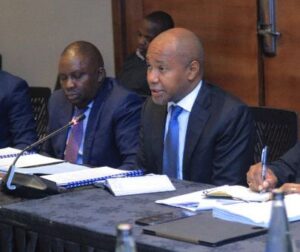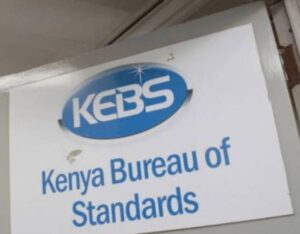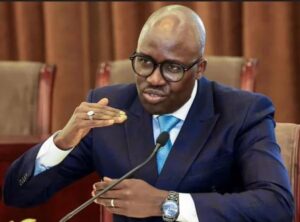
Photo/courtesy.
Kenya is bracing for two weeks of delicate negotiations with the International Monetary Fund (IMF), as the government pushes for a new program to steady its shaky finances and restore investor confidence.
An IMF staff team, led by mission chief Haimanot Teferra, arrived in Nairobi on September 25 and will hold discussions with Kenyan authorities until October 9. The talks follow a formal request by the government for renewed financial support after the country’s previous arrangement collapsed earlier this year.
Why It Matters
Kenya missed the final review of its last IMF-supported program and stalled access to about Sh126.8 billion ($976 million) in March. That program combined the Extended Fund Facility (EFF), the Extended Credit Facility (ECF), and later a Resilience and Sustainability Facility (RSF). It was worth Sh507 billion ($3.9 billion) in total and had already disbursed more than Sh387 billion ($3 billion) before being abandoned in early 2025.
ALSO READ: Why Uganda is on IMF’s Doorstep Seeking Funding
The lapse came at a steep cost. Without IMF backing, government has struggled to convince other lenders of its fiscal credibility. The endorsement by IMF often unlocks additional concessional financing from the World Bank and bilateral partners making the outcome of this new round of talks pivotal.
What’s at Stake
Kenya’s outstanding credit from the IMF stands at about Sh490 billion ($3.8 billion). The government is seeking a new package that would provide balance of payments support and buy time to manage its rising debt obligations. More than half of annual revenue now goes to debt servicing which makes investors to shy away from putting their investments in Kenya.
The negotiations are expected to revolve around familiar but politically sensitive issues. These include raising revenue, narrowing fiscal deficits and tightening debt management. The IMF has also been conducting a governance diagnostic for the country, with a draft report expected later this year. Reforms tied to governance, transparency and spending efficiency are likely to form part of any new deal.
Possible negotiation outcome and implications
The Nairobi mission could pave the way for a fresh IMF-supported program, restoring some policy credibility while offering breathing space if the governments inks a deal with the Brettonwood lender, but on the flip side, the government risks prolonged financial strain at a time when global markets are already jittery about emerging market debt.




